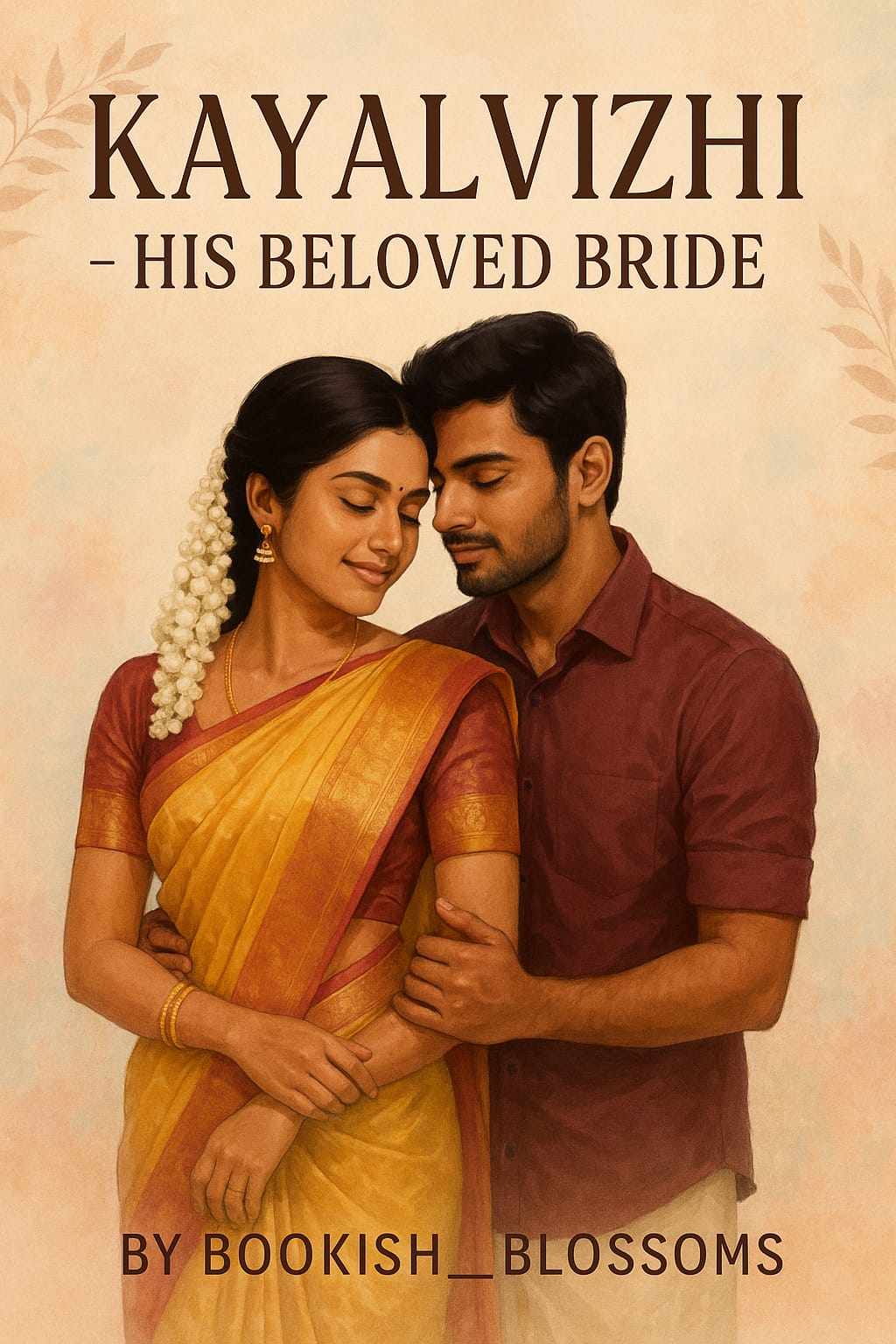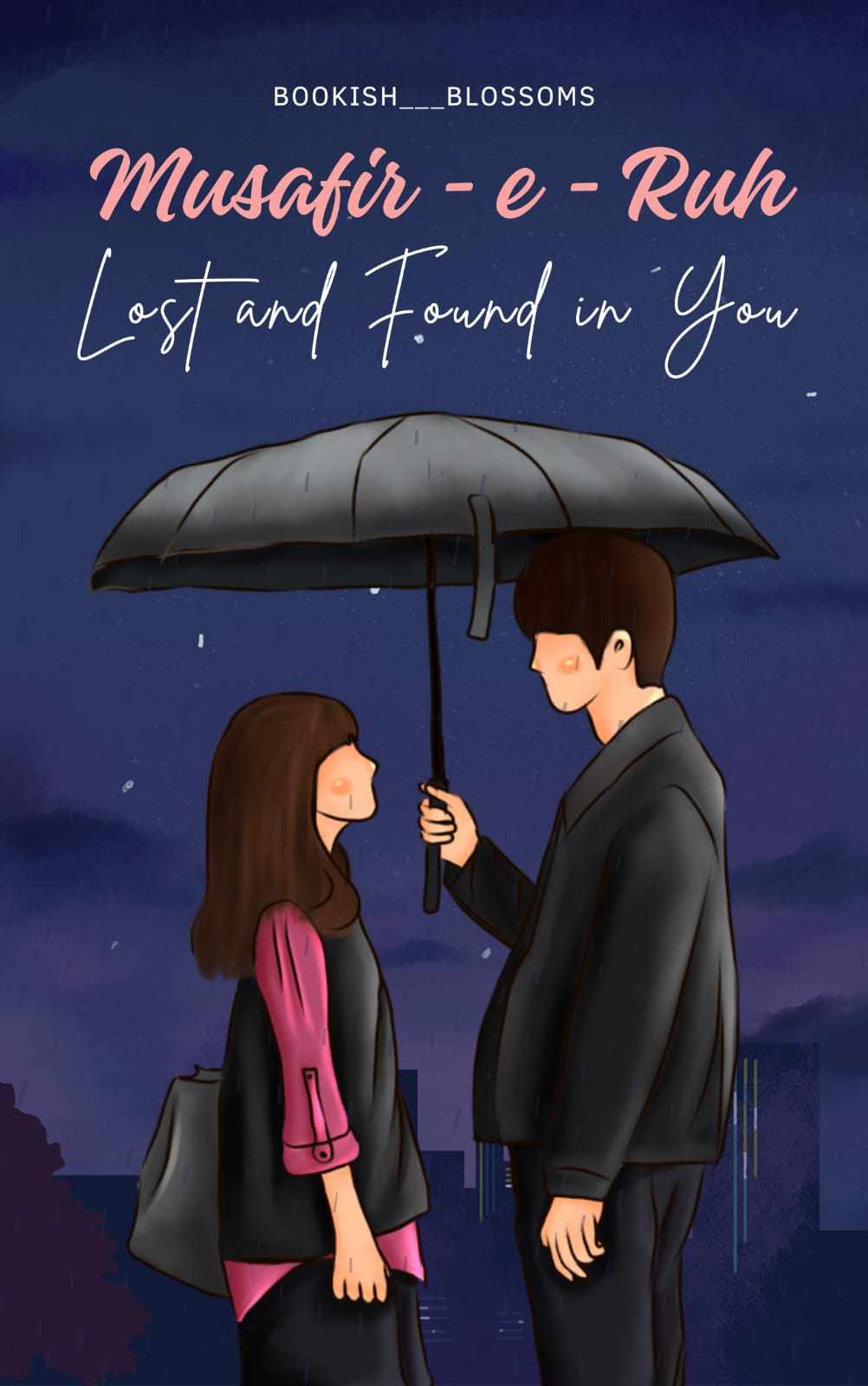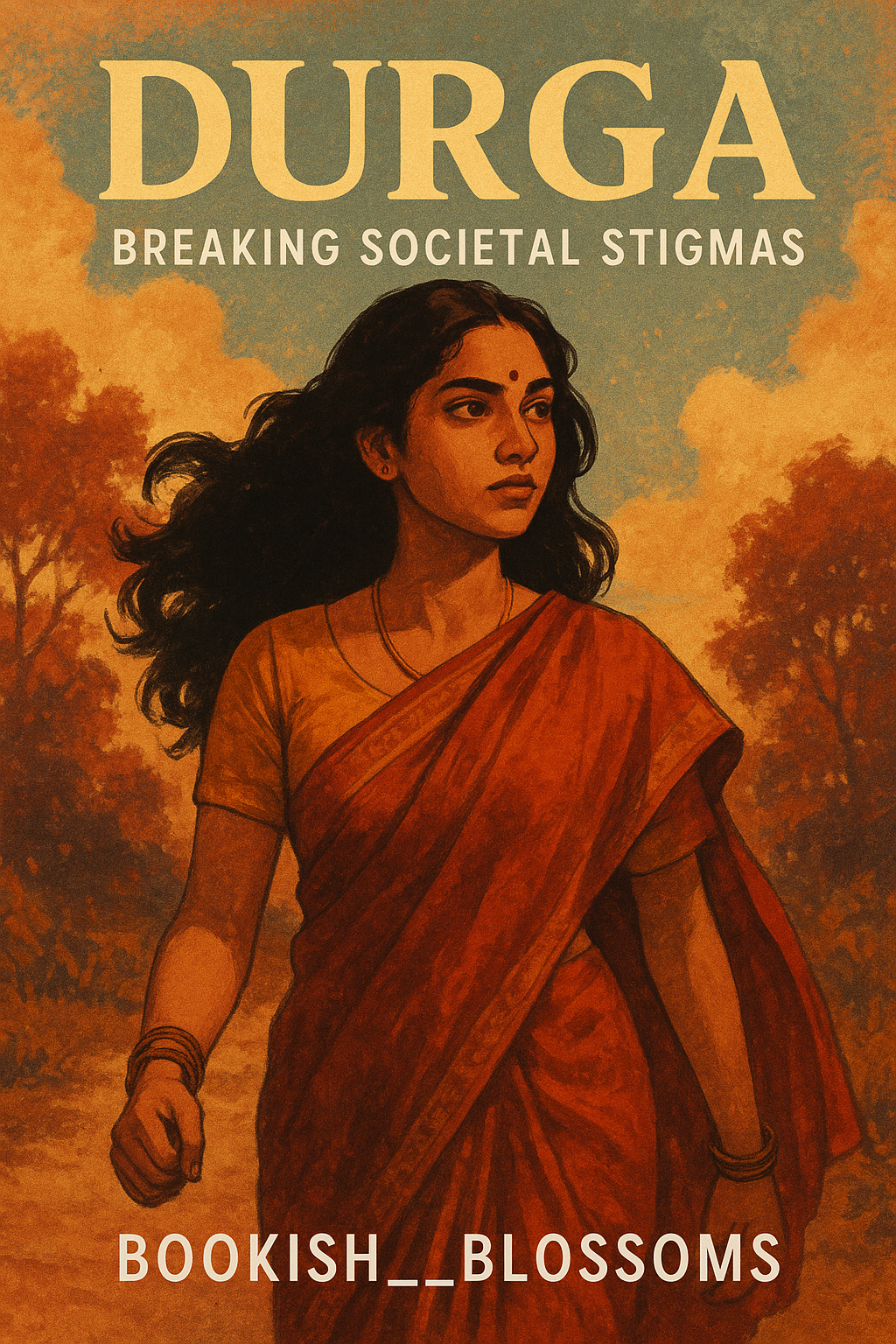
Raghav's pov:
Just one week was left before Aarti and I would leave for the city. The thought of moving away from my ancestral home stirred bittersweet emotions. This house had seen generations of our family, but for Aarti, The city would give her a chance to reclaim her voice, her music, without the watchful eyes of tradition binding her.
This morning, I left early. Everyone at home thought I was heading to school, but today, my journey had a different purpose. I was going to Aarti’s family home to retrieve her grandfather’s Veena - the same one her parents had taken away when they felt it was a distraction.
Taking it home wasn’t an option. It would raise too many questions and undoubtedly cause a scene. Instead, I planned to take it directly to our new house in the city. It would wait there, ready to greet Aarti when she finally embraced the freedom she deserved.
But I’d never lied before. Today, I had to. Not for myself, but for her.
When I reached her parents house, her father greeted me at the door, his expression curious but warm.
Aarti’s father greeted me with mild surprise. “Damad ji, aap jaldi aa gaye. Sab theek hai?”
(Son-in-law, you’ve come early. Is everything all right?)
I nodded, offering a polite smile. “Sab theek hai, sasur ji. Main aas-paas tha aur socha ki thoda ruk jaoon. Ek baat puchni thi aap se... aapke pitaji ki veena ke baare mein.”
(Everything is fine, Uncle. I was in the area and thought I’d stop by. There’s something I wanted to ask you about... your father’s Veena.)
His expressions turned cautious. “Veena? Aap uske baare mein kyun puch rahe ho, beta?”
(The Veena? Why would you be asking about that, son?)
I kept my tone light, masking the purpose behind my visit. “Mujhe yaad aaya, aapne ek baar kaha tha ki yeh ek virasat ka saman hai. Main hamesha dekhta hoon ki kaise parivaar aise paramparaon ko zinda rakhte hain. Soch raha tha ki kya yeh abhi bhi acchi halat mein hai.”
(I remembered you once mentioned it was an heirloom. I’ve always admired how families keep such traditions alive. I was wondering if it’s still in good condition.)
Aarti’s father frowned slightly, his gaze flickering to the corner of the room. “Yeh saalon se dhool jama ho raha hai. Mere pitaji ke guzarne ke baad, humne ise rakh diya. Sangeet se roti nahi milti - yeh ek dhang tha, khaas kar Aarti ke liye.”
(It’s been gathering dust for years. After my father passed, we put it away. Music doesn’t put food on the table - it was a distraction, especially for Aarti.)
I forced my face to remain neutral, though the words stung. “Main samajh sakta hoon, sasur ji. Lekin aisi virasat ka saman kone mein rakha rehna nahi chahiye. Agar aap ise istemal nahi kar rahe hain, toh shayad main ise aap se le sakoon? Mere school ke students ko aise ek upkaran ke baare mein seekhne mein ruchi ho sakti hai. Yeh unhe prerit kar sakta hai.”
(I understand, Uncle. But an heirloom like that deserves better than a corner. If you’re not using it, perhaps I could take it off your hands? My students at the school might appreciate learning about such an instrument. It could inspire them.)
The mention of students seemed to soften her father’s stance. “Aap lagta hai ki woh iski qadr karenge? ”
(You think they’d value it?)
I said earnestly. “Main samajhta hoon, yeh itihas ka ek hissa hai. Chahe ise na bajaya jaaye, iska hona parampara ki yaad dilata rahega.”
(I do,It’s a piece of history. Even if it’s not played, its presence would be a reminder of tradition.)
Aarti’s mother, who had been listening quietly, finally spoke. “Veena bas wahan baithi hai, dhool jama kar rahi hai. Agar damad ji ko lagta hai ki yeh upyogi ho sakta hai, toh use ise le lene do.”
(The Veena is just sitting there, gathering dust. If he thinks it could be useful, let him take it.)
After a moment’s hesitation, her father nodded. “Thik hai, damad ji. Isse le lo. Lekin dhyaan se rakhna - yeh mere pitaji ki garv ki baat thi.”
(All right, Raghav. Take it. But handle it with care - it was my father’s pride.)
I told thankfully, “Dhanyavaad, sasur ji. Main dhyaan rakhoonga ki ise acche se sambhala jaye.”
(Thank you, Uncle. I’ll make sure it’s cared for properly.)
They brought the Veena out from its forgotten corner. Seeing it after all these years, even in its slightly worn condition, I could imagine the joy it would bring Aarti.
As they helped me retrieve the Veena from its resting place, I felt a surge of quiet triumph. I could already imagine Aarti’s face when she saw it again.Carefully wrapping it in a cloth, I thanked them again and left.
The journey to the city felt longer than usual with the Veena beside me. When I reached the new house, I placed it gently in a safe corner, imagining the day Aarti would see it again.
For her, it wasn’t just an instrument. It was her voice, waiting to be heard again. And for me, nothing mattered more than giving her that chance.
The city’s hustle and bustle felt different today, as my heart carried a purpose beyond the usual daily routines. After reaching our new house, I took a deep breath, knowing what I had to do. The Veena, Aarti's grandfather’s prized instrument, was now in my hands. I could feel the weight of it, not just in my arms, but in the depth of the emotions tied to it.
I had no experience with restoring an instrument like this. But I knew just where to go. There was a shop in the city, one that specialized in repairing and polishing musical instruments. It had a reputation for bringing even the oldest of instruments back to life.
The shopkeeper, an elderly man with kind eyes, accepted the Veena without question. "Leave it to me, sir," he said, his hands gently caressing the instrument. "We’ll make it sing again."
I walked away with a quiet hope in my heart, knowing that Aarti’s Veena would soon be ready to play once more.
Once it was restored, I returned to the shop to collect it. The Veena gleamed as though it had been given a new life. The delicate carvings stood out, the strings shining bright under the shop's warm lights. I carefully took it to our new home and placed it in a corner of the living room, where sunlight filtered through the windows, casting soft rays over it. It felt like a small victory, but it was everything to me.
After paying the house owner, I found myself wandering through the streets of the city, thinking about what else I could do for Aarti. Next week was her birthday, and it felt like the perfect moment to show her just how much she meant to me.
I passed a small cloth shop, and without thinking, I entered. Aarti had always admired the softness of cotton sarees, especially in the warm shades of blue. I selected a saree that I knew would make her look radiant, its simple elegance reflecting the quiet beauty that she carried within.
As I stepped out, I made my way to a nearby jewelry shop. There, amidst the sparkle of gold, I found the perfect pair of jhumkas - small, golden, and graceful, just like Aarti.
I had saved money for years, each coin a small promise to myself. Today, it felt right to spend it all for her. Because, for Aarti, I would do anything - wait years, or spend in a moment, just to see her smile.
Walking back, my heart raced with excitement. I imagined her surprise as she discovered the Veena, the saree, and the jhumkas. Would she understand how much it meant to me to see her happy? Would she know that this was just the beginning of what I hoped to give her?
For Aarti, everything felt worth it.





Write a comment ...